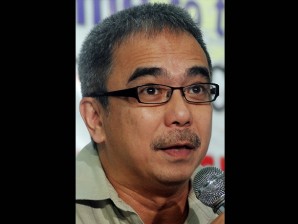From “Juan Tamad” to “Juan Time.”
The Department of Science and Technology (DOST), in partnership with the Philippine representative of the Discovery Channel, is launching a campaign to redefine “Filipino time,” the notorious national habit of always being late.
“In these fast-paced times, a few seconds difference in time reference counts a lot. Through this campaign, I hope we can remind everyone about the importance of observing a common time reference that is the Philippine Standard Time (PST) and, of course, being on time in everything that we do,” said Science and Technology Secretary Mario Montejo.
The Juan Time project (a play on “one time”) seeks to encourage Filipinos to synchronize all their clocks and watches, and quit making excuses for missing their call times—whether in school, at the office or in social gatherings.
The Philippine Atmospheric, Geophysical and Astronomical Services Administration (Pagasa) under the DOST has been the official timekeeper of the Philippines by law since 1978.
“PST, the country’s official time, sets only one common time in the archipelago’s more than 7,100 islands. Juan Time reminds Filipinos that keeping to the PST avoids the difficulties of having confusing, unsynchronized time,” Montejo said.
“With Juan Time, Filipino time will come to mean ‘on time’ and no longer late,” he added.
Filipinos may synchronize their watches with the Philippine standard time displayed online on Pagasa’s website (www.weather.gov.ph). The weather bureau’s timing system works on an atomic clock, known for its accuracy, the DOST said.
Time management
Jacque Ruby, Discovery Channel’s representative in Manila who initiated the project, said the Juan Time campaign hopes to underscore the importance of time management.
“We want to standardize our time again, to synchronize our time. Juan Time is not just about standardizing our time, it’s time management, [for people to] be aware of the passage of time. Otherwise, you will miss the important things,” said Ruby.
Ruby noted that Filipinos typically defined time in vague terms: An appointment is made “in the morning” instead of committing to 9 a.m. or a meeting is “after lunch” instead of agreeing to 1:30 p.m.
“It’s about time. It’s a social ill. It is no different from gambling, from eating disorders, because it affects relationships, it even affects your career. The problem is Filipinos have gotten used to it,” Ruby told the Inquirer in an interview.
A personal tragedy inspired Ruby’s inception of the initiative earlier this year. On Feb. 15, he had missed his father Jose’s final moments as he decided to go home first to rest and freshen up.
“My dad was really sick and we knew that he was going to die. But I decided to come home first to take a shower because I projected that he still had a few hours,” recalled Ruby.
His father, 79, had been in the hospital suffering from diabetes complications.
Biggest regret
“I brought my wife home because we were very tired, we wanted to wash up and maybe take a nap. I thought he would last until the morning. Around 1 or 2 a.m., my sister called and told me to rush to the hospital,” Ruby said.
“I wasn’t there when my dad moved on, when my dad passed away. That’s one of the biggest regrets of my life,” he said.
Such a “life altering” moment prompted Ruby to start a project to make punctuality cool and recalibrate the Filipino’s trailing clock. He enlisted DOST’s support and encouraged other private sector partners to hold a grand launch on Sept. 30.
Giant clock
To be held at the SM Mall of Asia, the Juan Time launch will see the unveiling of a giant clock that will display Philippine standard time at exactly 6 p.m. A countdown and fireworks will cap the evening.
Expected guests include Vice President Jejomar Binay, Gawad Kalinga founder Tony Meloto and 2009 CNN Hero Efren Penaflorida, among others, Ruby said.


